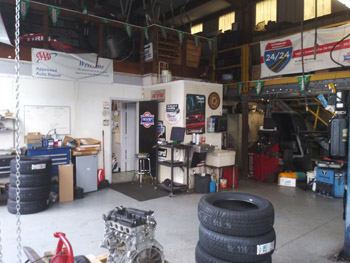All Categories
Featured

Your auto's engine is the heart of your car, and keeping it in top problem is vital for optimal efficiency and long life. Regular engine tune-ups are a terrific way to preserve your car's health and wellness, improve fuel performance, and prevent pricey repair work down the roadway. Whether you're an automobile fanatic or someone who just intends to keep their vehicle running smoothly, these engine tune-up ideas will certainly aid you obtain the most out of your automobile.
- Change Flicker Plugs. Stimulate plugs play a critical role in beginning your engine and guaranteeing smooth burning. In time, ignition system can end up being filthy or broken, bring about misfires, minimized gas efficiency, and harsh idling.
Throughout an engine tune-up, check and change your ignition system if necessary. The majority of vehicles need brand-new ignition system every 30,000 to 100,000 miles, depending upon the type. Frequently replacing spark plugs guarantees correct ignition and optimum engine efficiency.
- Inspect and Clean the Air Filter. The air filter protects against dirt, dust, and debris from entering your engine. A stopped up or dirty air filter limits air movement, causing your engine to function more challenging and shed even more fuel.
Inspect your air filter during a tune-up and change it if it's unclean. In dirty environments or locations with hefty contamination, you might require to alter the air filter much more frequently. A tidy air filter can improve gas performance and extend the life of your engine.
- Examine and Change Belts and Hoses. Belts and hose pipes are crucial for different engine functions, such as powering the alternator, water pump, and a/c system. Gradually, these parts can split, battle royal, or use out, possibly causing malfunctions.
During a tune-up, check belts and hoses for indicators of wear and replace them if needed. Changing these parts proactively can conserve you from costly repair services and stop unforeseen failures.
- Tidy the Gas System. Your gas system, including the fuel injectors and gas lines, can build up dust and carbon deposits gradually, minimizing engine effectiveness. Cleaning the gas system during a tune-up aids improve performance and gas economic climate.
You can utilize a gas system cleaner or have a professional mechanic do a much more comprehensive cleaning. This step is especially crucial for older automobiles or vehicles that often drive in stop-and-go website traffic.
- Inspect the Battery and Charging System. A healthy and balanced battery is vital for beginning your engine and powering electric parts. During a tune-up, inspect the battery terminals for corrosion and make sure the connections are tight.
Inspect the battery's voltage and change it if it reveals indications of weakness. Furthermore, have the alternator and billing system tested to ensure your battery stays charged throughout procedure.
- Change the Engine Oil and Oil Filter. Oil modifications are a fundamental component of engine upkeep. Engine oil lubes moving parts, lowers friction, and assists regulate engine temperature level. Gradually, oil comes to be infected and loses its effectiveness.
Throughout a tune-up, change the engine oil and oil filter to maintain your engine running smoothly. Follow your vehicle's maker suggestions for oil kind and change intervals.
- Examine the Air Conditioning System. The cooling system stops your engine from overheating. In time, coolant can weaken or come to be contaminated, minimizing its effectiveness.
Check the coolant degree and problem throughout a tune-up, and flush and change it if needed. Check the radiator, water pump, and tubes for leaks or damages. A well-maintained air conditioning system aids your engine run at the right temperature level and prevents getting too hot.
- Test the Ignition System. A faulty ignition system can trigger beginning problems and lowered engine performance. Throughout a tune-up, examine the ignition coils, distributor cap, and blades (if relevant) Replace any kind of parts that show signs of wear or damage to make sure smooth and dependable engine procedure.
- Listen for Unusual Sounds. Throughout a tune-up, seize the day to listen for any kind of unusual engine sounds, such as knocking, ticking, or hissing. These sounds can suggest underlying problems, such as shutoff issues, loose components, or exhaust leaks. Attending to these troubles early can avoid a lot more considerable damage.
- Use High Quality Components and Fluids. When carrying out an engine tune-up, always use premium parts and fluids that fulfill your car supplier's specifications. Inexpensive or incorrect elements can endanger your engine's efficiency and reliability.
Final Thought: A Well-Tuned Engine is Secret to Longevity. Routine engine tune-ups are essential for keeping your automobile's efficiency, performance, and integrity. By changing used parts, cleaning important systems, and resolving prospective issues, you can keep your engine running smoothly for several years ahead. Whether you're doing it yourself or relying on a trusted auto mechanic, spending in tune-ups is a wise means to secure your automobile and enjoy a more secure, smoother experience.
Latest Posts
Grab Special Auto Repair Deals in Chicago at Montclare Auto Repair
Learn About Exceptional Car Repair Solutions at Montclare Auto Repair – Keep Your Car Running Smoothly
Find Brake Repair & More: Comprehensive Auto Care Solutions from Montclare Auto Repair
More
Latest Posts
Grab Special Auto Repair Deals in Chicago at Montclare Auto Repair
Learn About Exceptional Car Repair Solutions at Montclare Auto Repair – Keep Your Car Running Smoothly
Find Brake Repair & More: Comprehensive Auto Care Solutions from Montclare Auto Repair
